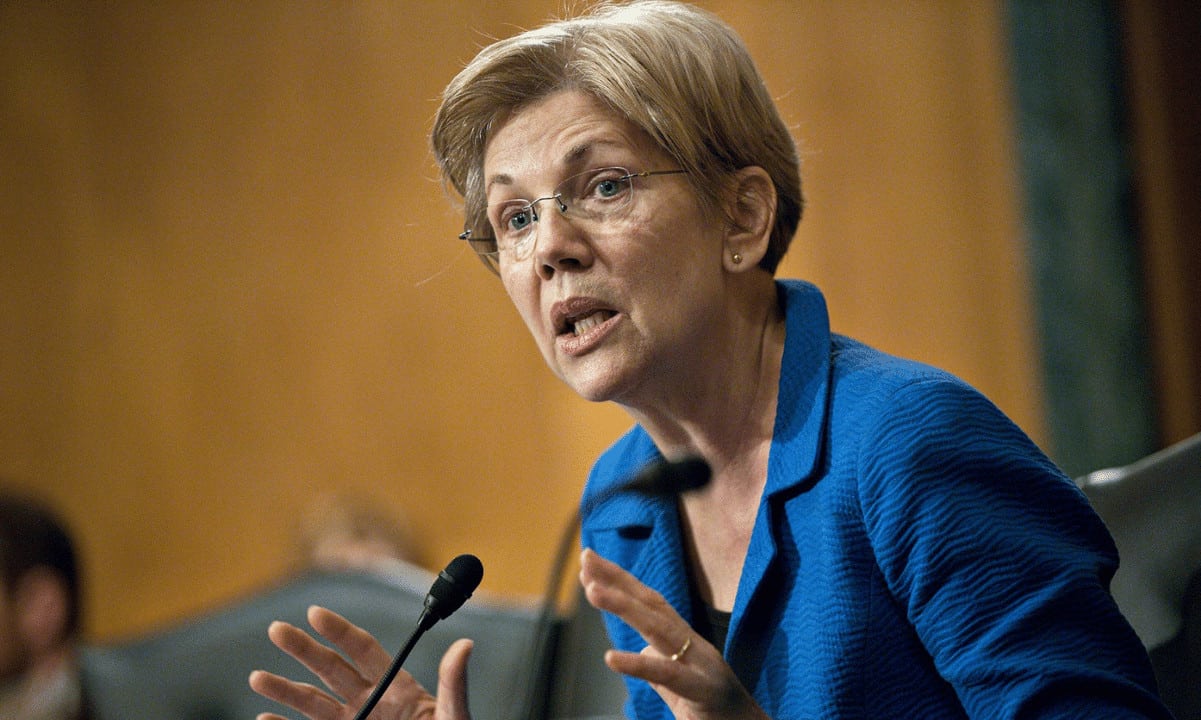

Well-known crypto critic, Senator Elizabeth Warren, won support from Washington-based banking advocacy group, the Bank Policy Institute (BPI), for newly introduced bipartisan legislation that seeks to regulate the crypto industry and eliminate loopholes for illicit activity.
Its support has been viewed as a peculiar move because both Warren and the Wall Street banks have hardly agreed on the same things before. In fact, the Senator has been known to blast at the trade group every now and then.
Counting on BPI’s Support
In an unexpected turn of events, the Bank Policy Institute (BPI) threw its weight behind the bill, which calls for more stringent anti-money laundering rules and counter-terrorism financing measures specifically for the crypto sector.
The whole premise of BPI’s decision is that the existing AML structure in the US does not cover digital assets.
Explaining its decision to back the legislation, the banking lobbyists said,
ADVERTISEMENT
“BPI supports bipartisan efforts to help crack down on money laundering and believes this measure is an important step in that direction. The existing anti-money laundering and Bank Secrecy Act framework must accounts for digital assets, and we look forward to engaging in this process to defend our nation’s financial system and illicit finance in all its forms.”
The bill was initially introduced by the Massachusetts Senator back in December 2022, a month after the dramatic collapse of FTX. It was re-introduced by Warren and three other Senators, West Virginia Democratic Senator Joe Manchin and Republican Senators Roger Mashall of Kansas and Lindsey Graham of South Carolina, on Friday.
Apart from BPI, the bill has also been endorsed by the Massachusetts Bankers Association, Transparency International US, Global Financial Integrity, National District Attorneys Association, Major County Sheriffs of America, Massachusetts Sheriff’s Association, AARP, National Consumer Law Center (on behalf of low-income clients), National Consumers League.
The Digital Asset Anti-Money Laundering Act
The bill seeks to extend Bank Secrecy Act (BSA) responsibilities, including KYC requirements, to crypto wallet providers, miners, validators, and other network participants.
It also seems to address what it describes as a “major gap” in terms of “unhosted” digital wallets, which enable users to bypass AML and sanction checks. The legislation also includes measures to direct FinCEN to roll out guidance to financial institutions in mitigating the risks of dealing with digital assets that have been shuffled with coin mixers such as Tornado Cash and other privacy technologies.
Strengthening enforcement of BSA compliance, extending BSA rules regarding reporting of foreign bank accounts to include digital assets, and granting FinCEN to have oversight on illicit financial risks of digital assets ATMs are some of the other aspects of the seven-page legislation.
The latest development comes in the wake of another important crypto bill, FIT21, that seeks to end the turf war between the SEC and the CFTC over regulatory oversight of the space and bring much-needed clarity to the industry. The bill has garnered support from several crypto players, including Coinbase CEO Brian Armstrong.
Binance Free $100 (Exclusive): Use this link to register and receive $100 free and 10% off fees on Binance Futures first month (terms).
PrimeXBT Special Offer: Use this link to register & enter CRYPTOPOTATO50 code to receive up to $7,000 on your deposits.
The post appeared first on CryptoPotato






